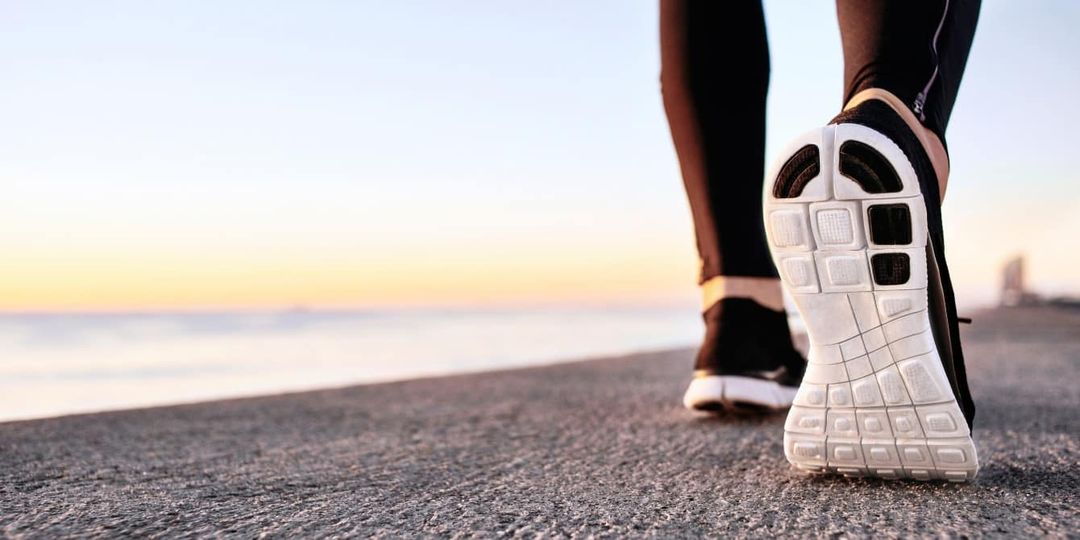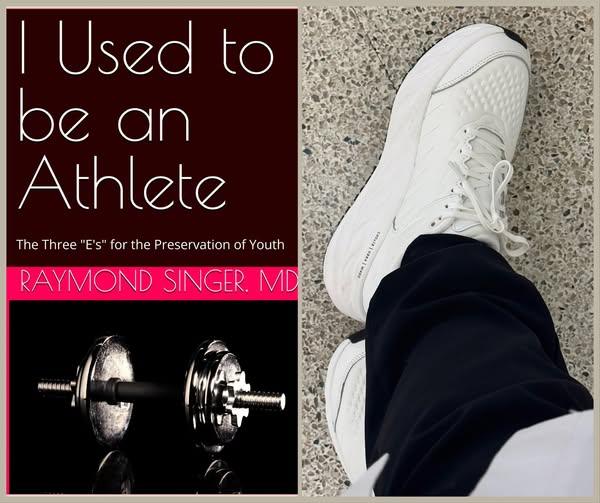When is the Best Time to Exercise?
This video talks about the advantages of exercising in the morning.
- Morning workouts release endorphins and improve blood flow, helping you to feel more energized and mentally sharp throughout your day.
- There are fewer distractions in the morning and it makes it easier to stick to a routine and avoid skipping workouts.
- Morning exercise can kickstart your metabolism and promote calorie burning throughout the day.
- Studies suggest that morning exercisers often experience better sleep quality compared to those who work out later in the day.
- Physical activity increases mental clarity, which can enhance performance at work or school.
- People who start the day with exercise often make better food choices, and feel more motivated to maintain healthy habits.
Health Benefits of Physical Activity
Physical activity offers numerous immediate and long-term benefits. In my new book, “I Used to be an Athlete,” I explain how exercise enhances overall well-being. Regular physical activity improves immediate feelings of well-being, functional capacity, and sleep quality, with health benefits spanning all ages, from children to adults and seniors aged 65 and above.
Exercise not only boosts heart health but also contributes significantly to brain health. Consistent physical activity improves cognitive function, judgment, and skills, while reducing the risk of depression and anxiety. Furthermore, regular exercise facilitates weight management, not only through physical activity but also by promoting better sleep habits and healthier eating choices.
As discussed in my book, adopting a lifestyle change approach, rather than adhering to fad diets, can prevent cardiovascular disease, type 2 diabetes, and even enhance resilience against infectious diseases and certain cancers. Research has shown that regular physical activity may decrease the risk of developing bladder, breast, colon, endometrial, and esophageal cancers, among others.
The key is to incorporate physical activity into one’s daily routine, much like showering or brushing teeth. By prioritizing exercise, individuals can experience benefits at any age.
https://a.co/d/anzn8Yc
I’ve been fortunate to work at aesthetically beautiful hospitals for my entire career. It’s important to understand that beautifully-designed hospital spaces do have a positive impact on healing, from allowing in natural light, to the construction of healing gardens for patients and visitors, as well as in the creation of innovative designs to ensure patient privacy and dignity.
Equally impressive is how these beautifully-designed hospital spaces also support the emotional wellness and unity among employees, often fostering a culture of collective community engagement. Indeed, “neuroaesthetics” is a field of study that examines the psychological effects of how the brain responds to art, music, or in this instance, the incorporation of beauty into the design of buildings and workspaces.
Healthcare facilities are among the most expensive buildings to construct, maintain, and operate. Once built, hospital buildings remain in service for decades and are often difficult to modify. Thankfully, the modern design approach is “patient-centered,” often seeking physician, nursing staff, and patient input, thus aligning evidence-based hospital design with evidence-based clinical medicine.
How Safe are GLP Medications?
Drugs known as GLP-1 medications are being widely prescribed in the United States. The most well-known are Mounjaro, Ozempic, Wegovy, Cagrisema, and Rybelsus.
In this video, I explained the basics, including how they work, their impact on the heart, and some of their side effects. The important thing, as always, is to consult with your Primary Care Physician (PCP), as well as to do your own research to better understand the benefits and risks.
These drugs are not cure-alls. If you don’t change your lifestyle by improving your diet and exercise, these medications will only have a short term impact, or none at all. As always, focus on your total well-being. There are no magic fixes.
Smoking Effects the Heart:
Patient’s Heart Stopped Moments Before His Scheduled Heart Surgery
With permission from the patient to post, this man’s heart stopped just moments before he was scheduled to undergo coronary artery bypass surgery. He received emergency resuscitation, including CPR for 20-30 minutes, as we proceeded to emergently place him safely on the heart-lung machine.
Now 6 days later, he is going home. This life-changing event has finally convinced him to stop smoking, which was a significant risk factor for his heart and lung issues. He knows he’s one fortunate fellow, who was at the right place, at the right time, and to be blessed with a second chance at life!
Why Are We No Longer “Young at Heart” in America?
With permission from the patient to post, this 38-year old man’s story is emblematic of a growing number of young adults suffering heart attacks from premature coronary artery disease.
Why are we no longer “young at heart” in America? The Framingham Heart Study reminds us of the importance of six risk factors for cardiovascular disease: High total cholesterol, low HDL, high blood pressure, diabetes, obesity, and smoking.
While family history and genetic predisposition are important, we are seeing a massive increase in obese young adults who lack exercise, with signs of advanced metabolic syndrome—then, add in today’s stress and seemingly endless world crises, we now have the perfect brew for premature inflammatory vascular disease, heart attacks, and sudden death.
Education remains the key. A recent Harvard survey of more than 4,000 individuals, with an average age of 30, found that over 65% of these young adults were unable to identify ANY of the six major cardiac risk factors. That’s a striking finding and one that we can change with better education and mentoring.
Families need to instill healthier habits in their children at a younger age and encourage their children to adopt an attitude and focus on lifelong wellbeing. Schools and colleges would do well to provide mandatory health courses and promote healthier activities and better food options on campuses. Corporations and businesses would also see better productivity from their teams if a focus on healthier lifestyles becomes an integral part of their business model.
Unfortunately, it’s going to take time, effort, and funding to turn around the health of our youth in America. Until then, we might expect to see more cases like the one illustrated in this video.

Is Walking Good Enough Exercise?
- Improves cardiovascular fitness.
- Helps lose body fat and maintain healthy weight.
- Strengthens muscles and bones.
- Increases energy levels.
- Strengthens the immune system.
- Improves memory.
- Improves cognition.
- Improves sleep.
- Improves balance and coordination.
- Reduces stress and tension.
“Beauty surrounds us, but usually we need to be walking in a garden to know it.” –Rumi




